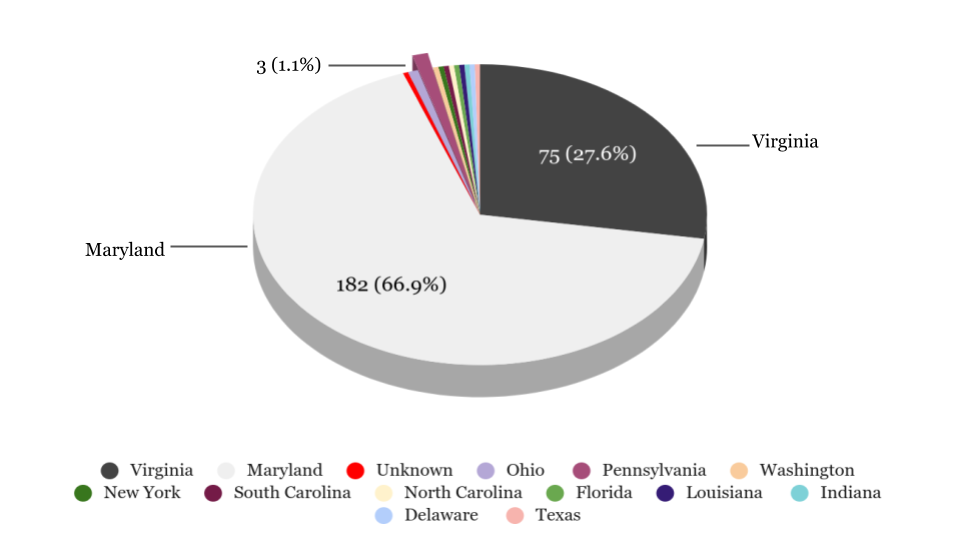Throughout the summer, hundreds of alleged fugitives were brought before the DC Superior Court, wanted on charges ranging from larceny to homicide.
Around 269 fugitive defendants came through the court between June 16 and Sept. 1, according to D.C. Witness data.
Fugitives are defendants in cases who are wanted or thought to be the person wanted for charges in states outside of DC. Some defendants may be wanted by more than one state.
Most of the fugitives who had hearings in D.C. allegedly committed crimes in Maryland (182). Virginia (75) and Pennsylvania (3) were the second and third highest state, respectively, where the fugitives were wanted.

D.C. Witness data shows that fugitives, who were apprehended in DC, came from 13 states located on the East coast, South and mid-west.
One defendant, Rachon Bethea, was wanted for failure to appear for a homicide case in Maryland. Judge James Crowell decided to hold him on Sept. 3. Maryland picked Bethea up on Sept. 9.
Of all the defendants, Joshua Walker was the farthest away from his demanding state. Walker was wanted by Washington state for escape. He had a bench warrant out for his arrest since Oct. 16, 2019.
During his July 10 hearing, Judge James Crowell decided to detain Walker, saying he cannot ensure that the defendant won’t be a flight risk.
Walker waived his extradition hearing. Washington state authorities had until July 15 to pick him up. Otherwise, his case would be deferred to DC. However, the prosecution motioned for an extension of time on July 14, and Walker was picked up on July 20.
Walker was one of 31 defendants during this time period who waived their extradition and was picked up by the state that wanted them. Over half of the fugitive cases that came to the court during this time period remain undisposed.
Approximately 47 defendants were wanted for various assault charges. The second most common underlying charge was probation violation, and the third most common was failure to appear. D.C. Witness does not know all of the charges for which these defendants were wanted. And states may have different names for similar offenses.

(Some defendants have multiple underlying charges)
Around 14 percent of underlying charges in these fugitive cases could be considered process crimes. Failure to appear along with charges such as contempt and obstruction, are examples of crimes that interfere with the prosecution of a defendant.
As the name suggests, a defendant may be charged with failure to appear if that defendant does not show up to court. The most common underlying charge for fugitive defendants who were wanted for failure to appear was larceny.

Andrea Keckley and Abigail Grifno wrote this article


